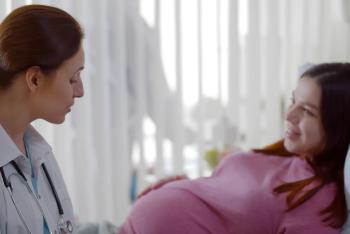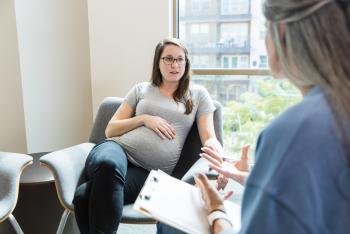Urinary tract infections (UTIs), bacterial infections of the bladder, are common health conditions...
Read More

Whether you take birth control or are trying to conceive, chances are you’ve considered how the pill affects your body and whether it causes fertility issues. Here’s what you need to know about hormonal birth control and fertility.
“It’s possible to conceive within a few months of stopping most types of birth control,” said Karen Krieg, D.O., Inspira Medical Group OB/GYN. “Don’t stop taking birth control unless you’re ready to get pregnant.” If you want to stop using hormonal birth control but aren’t ready to conceive, use another method of contraception, such as a hormone-free copper intrauterine device (IUD) or condoms.
Hormonal birth control methods can impact your fertility in different ways:
Yes. Although health experts used to believe that people were more likely to have a miscarriage if they got pregnant immediately after stopping birth control, current research shows it’s safe to try conceiving right away. According to the American College of Obstetrics and Gynecology (ACOG), taking birth control before getting pregnant doesn’t result in early pregnancy loss.
“Having a regular cycle, even when you’re not taking hormonal birth control, is a good sign of fertility,” said Dr. Krieg. “Menstrual cycles that aren’t extremely heavy or painful indicate that you don’t have a chronic gynecological condition that could interfere with your chances of becoming pregnant.” Signs of ovulation may include a change in cervical mucus, cervical position and basal body temperature. If you’re unsure, an over the counter ovulation test can help confirm whether you’re ovulating.
Many factors, including lifestyle choices, medical history, weight and age can affect your fertility, even after you stop using birth control. If you’re struggling to conceive, talk to your OB/GYN about your options. Your OB/GYN can help you explore ways to increase your chances of becoming pregnant and can decide if a consultation with a fertility specialist is warranted.
Inspira Health is a high reliability organization (HRO), which means safety is the top priority for patients and staff. To make an appointment, call 1-800-INSPIRA.

Urinary tract infections (UTIs), bacterial infections of the bladder, are common health conditions...
Read More
Midwives offer a compassionate, patient-centered approach. With an emphasis on consent and shared...
Read More
With everything new that comes with pregnancy, many pregnant people experience memory issues. But is...
Read More
The material set forth in this site in no way seeks to diagnose or treat illness or to serve as a substitute for professional medical care. Please speak with your health care provider if you have a health concern or if you are considering adopting any exercise program or dietary guidelines. For permission to reprint any portion of this website or to be removed from a notification list, please contact us at (856) 537-6772